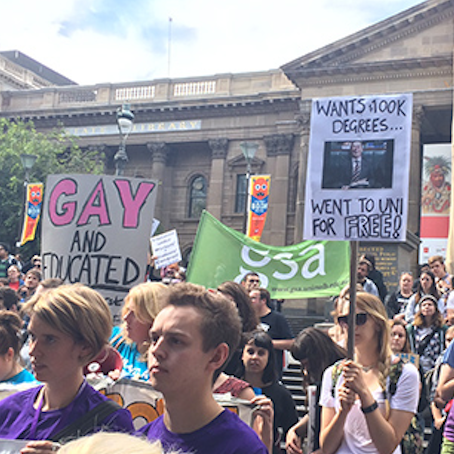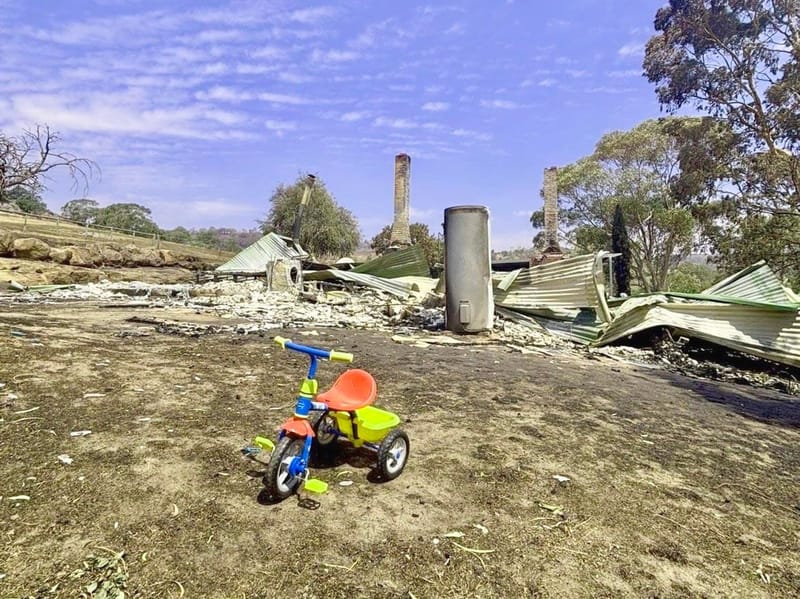Students rally against university fee hikes
Christopher Pyne hasn't given up, and neither have the students. A rally in the city this week protested against the Government's planned higher education changes, which remain on the agenda despite being voted down in the Senate.


Christopher Pyne hasn't given up, and neither have the students. A rally in the city last week protested against the Government's planned higher education fee changes, which remain on the agenda despite being voted down in the Senate.
By SUNNY LIU
University students from around Melbourne gathered at the State Library of Victoria last week to protest against the Government’s push to deregulate university fees.
Federal Education Minister Christopher Pyne has vowed to push ahead with the deregulation plan – which would allow universities to set their own tuition fees from 2016 – despite the move being voted down in the Senate this month.
Mr Pyne’s higher education package includes reducing the student debt repayment threshold from $53,345 to $50,638 from July 1, 2016.

National Tertiary Education Union president Jeannie Rea said government deregulation of university tuition fees would decrease student enrolments and disadvantage students from low socio-economic backgrounds.
“There will be many students [who] won’t be able to afford [to pay tuition fees] so they won’t enrol. As a result of low enrolment, universities will cancel courses, which will become unavailable for current students,” she said.
“Student protests and other related activities are putting pressure on Parliament … [It] attracts a high level of public attention and gives students opportunities to have a say.”
The National Union of Students president Deanna Taylor told the rally she believed universities were already underfunded and the quality of education had been declining for the past couple of years.
“Universities lack resources, there are fewer academics and students are losing studying opportunities,” she said.
“[They’re] introducing new scholarships … [and] just abolishing existing programs to balance the funding.”
Monash Student Association education officer Mali Rea said the move to privatise universities and treat education as a commodity would have a severe effect on the quality of education at the university.
“The casualisation of staff, introduction of seminars and change to online learning are cost-saving techniques used by the university to make profit; once profit becomes the sole motive of the university, the quality will continue to disintegrate,” she said.

One of the rally organisers, Mali Rea, said that the protests were “visible, material representations of student opposition” to the deregulation and education changes.
Mr Pyne told the 2015 Universities Australia Higher Education Conference in Parliament House this month that the reforms would improve education.
“Students stand to benefit from a fairer system, a more responsive system,” he said.
“The truth is that fee flexibility is the only way that Australia will be able to achieve a world-class higher education system.
“Higher education would have to make its contribution, along with almost every other area of public expenditure, to overall budget repair.”
Mr Pyne is struggling to push the reform Bill through Parliament. It was voted down 34-30 in the Senate.
Students at the rally said they would continue to protest and place pressure on Parliament until the current education reform Bill was abolished.





